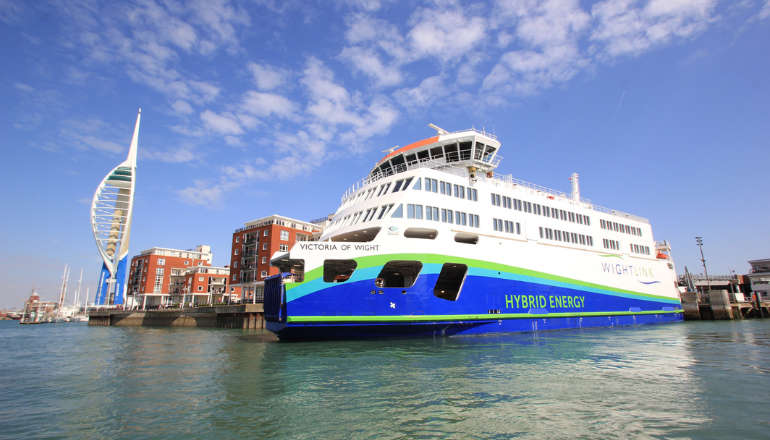
Tomorrow (Saturday) will mark five years since Wightlink’s flagship ferry Victoria of Wight carried her first passengers from Portsmouth to Fishbourne.
Since then, Victoria of Wight has sailed almost 190,000 nautical miles, or nine times around the world.
She has carried 1,752,690 vehicles and 1,472,761 passengers between Portsmouth and Fishbourne and has also sailed to and from UK shipyards in winter for dry-docking and hull surveys.
“Our hybrid flagship set new standards for comfort and reliability, from the moment she joined the fleet,” says Wightlink Chief Executive Keith Greenfield.
“Victoria of Wight is England’s first large ferry to combine energy from conventional engines and powerful batteries and she is 33% more fuel-efficient than our next largest ship, St Clare, which means reduced emissions.”
Captain Sam Mitchell was in charge on the Bridge on Victoria of Wight that first day on the route: He added:
“It was a privilege to be the Master when we carried our first fare-paying passengers.
"She is a magnificent ship with a hybrid propulsion system that is more environmentally friendly than most other ferries and gives our customers comfortable and smooth crossings to and from the Isle of Wight.”
Wightlink £30million investment in Victoria of Wight was key to the ferry company’s development of the Portsmouth – Fishbourne route.
£15million was also spent on port improvements to allow vehicles to be loaded using double-deck ramps on both Victoria of Wight and St Clare.
Wightlink’s hybrid flagship is just part of the company’s focus on sustainability and environmental initiatives across the business.
Highlights have included sourcing supplies from local producers wherever possible including milk from Briddlesford Dairy and sandwiches and savouries from Grace’s Bakery.
Ninety-nine per cent of waste is either recycled or used to produce energy.
Electric vehicle charging points are being installed at ports and a project to install solar panels to generate electricity at ports and on ships is underway.
Wightlink also partners with the University of Portsmouth and Blue Marine Foundation on marine science initiatives.


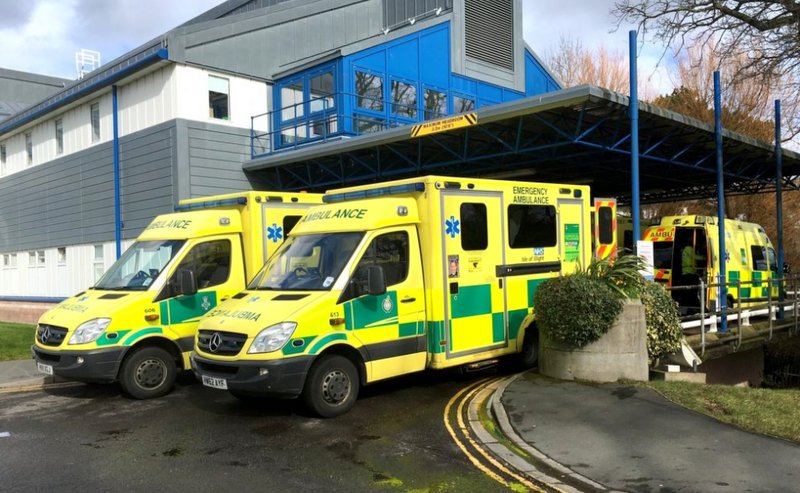 Call 111 First - Islanders Urged To Use The Correct Services This Half Term
Call 111 First - Islanders Urged To Use The Correct Services This Half Term
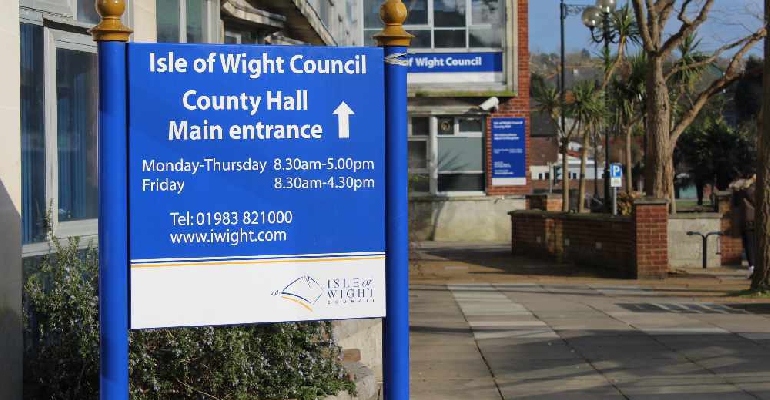 Children And Families Safeguarding Now Under Isle of Wight Council Control
Children And Families Safeguarding Now Under Isle of Wight Council Control
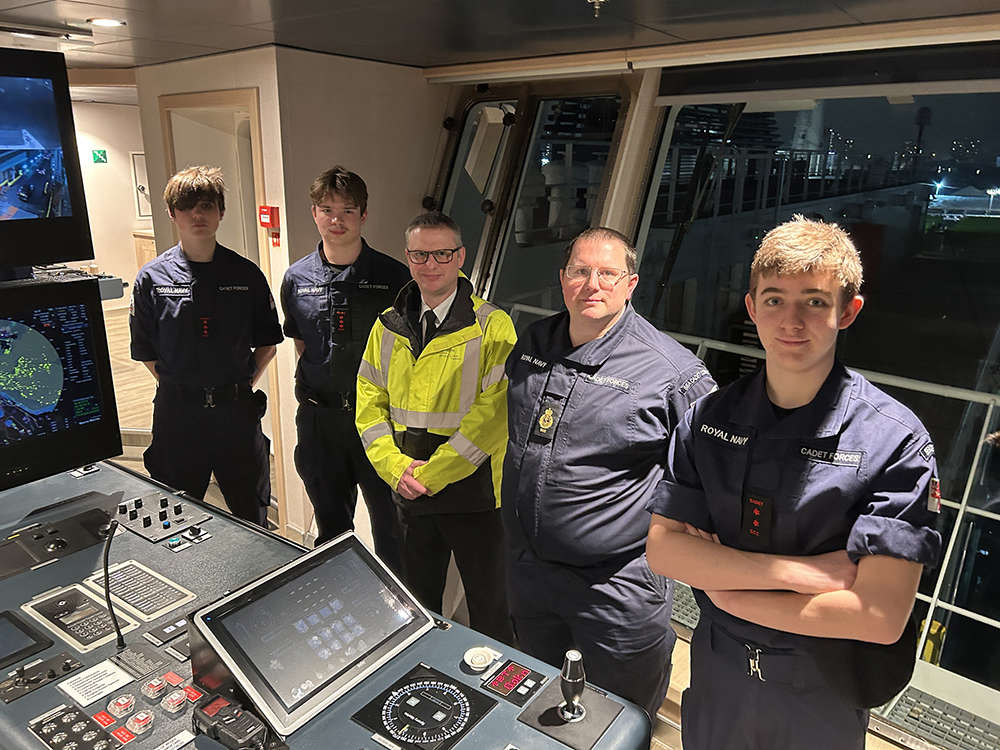 Ryde Sea Cadets Get Taste Of Life At Sea Thanks To Wightlink
Ryde Sea Cadets Get Taste Of Life At Sea Thanks To Wightlink
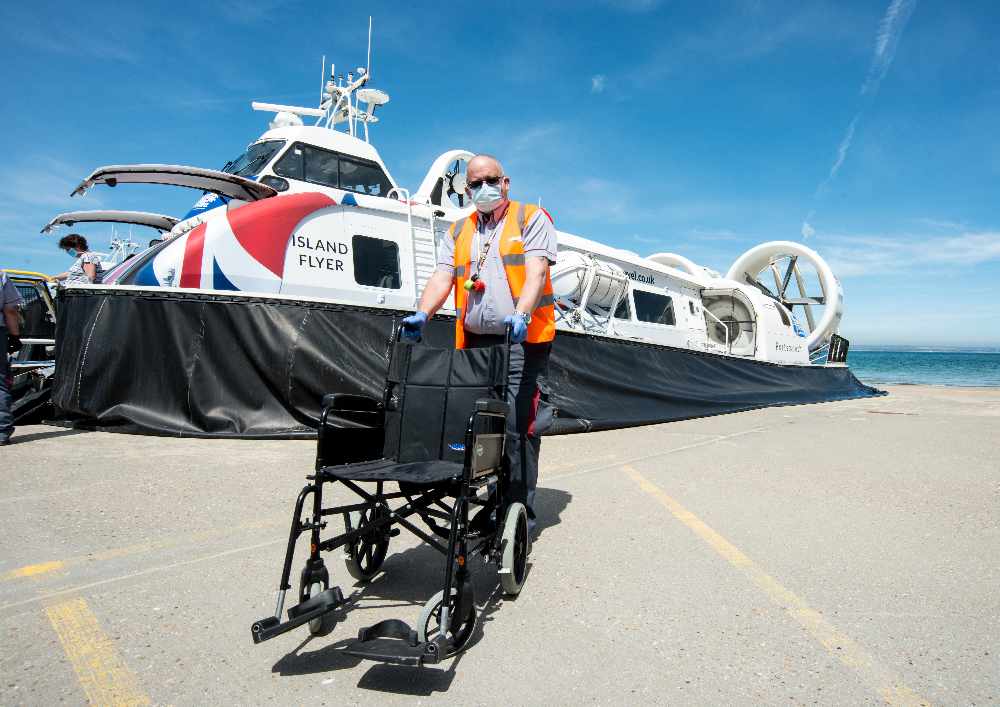 Hovertravel Makes The Cut For 'Leaders' Status In UK Inclusive Transport
Hovertravel Makes The Cut For 'Leaders' Status In UK Inclusive Transport
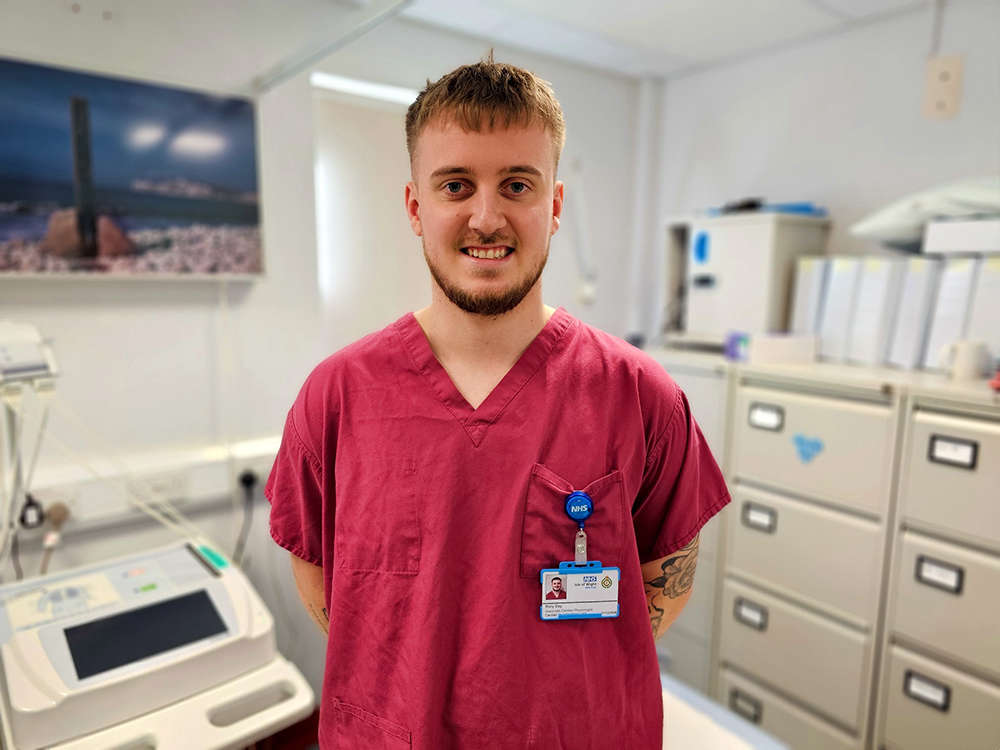 Isle of Wight NHS Trust Celebrates Apprentices As More Than 500 Supported
Isle of Wight NHS Trust Celebrates Apprentices As More Than 500 Supported
 Bomb Squad Respond To Suspected Ordnance On Island Farmland
Bomb Squad Respond To Suspected Ordnance On Island Farmland
 Info On Careers And Apprenticeships Available At Island Futures Job Fair
Info On Careers And Apprenticeships Available At Island Futures Job Fair
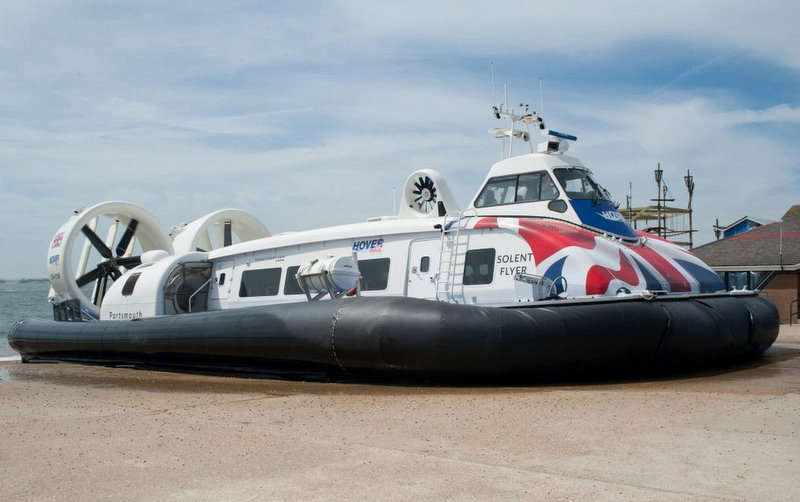 New HoverBlue Discounts Available For Island Residents
New HoverBlue Discounts Available For Island Residents
 Older Island Residents Invited To Have Free RSV Vaccine
Older Island Residents Invited To Have Free RSV Vaccine
 Lord Louis Children's Library Reopens With Range Of Activities On Offer
Lord Louis Children's Library Reopens With Range Of Activities On Offer
 "Very Tough Decisions" Amid "Chronic" Government Underfunding - Greens On Budget
"Very Tough Decisions" Amid "Chronic" Government Underfunding - Greens On Budget
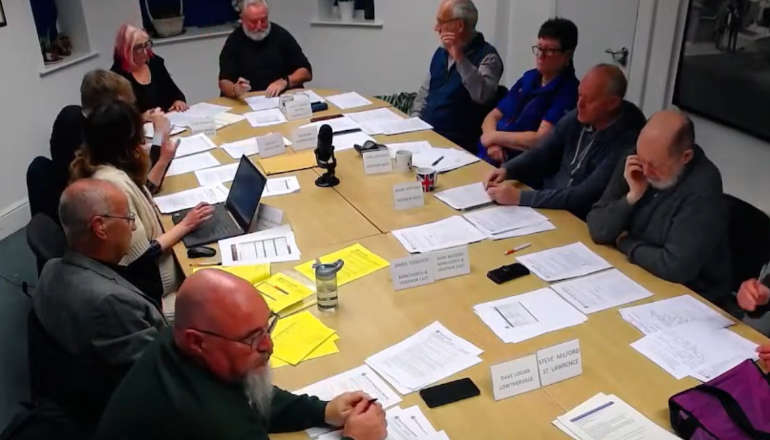 Town Council Votes To Keep "Vital" Beach Safety Project With Precept Increase
Town Council Votes To Keep "Vital" Beach Safety Project With Precept Increase
 Two Teenage Boys Arrested Following Binstead Robbery
Two Teenage Boys Arrested Following Binstead Robbery
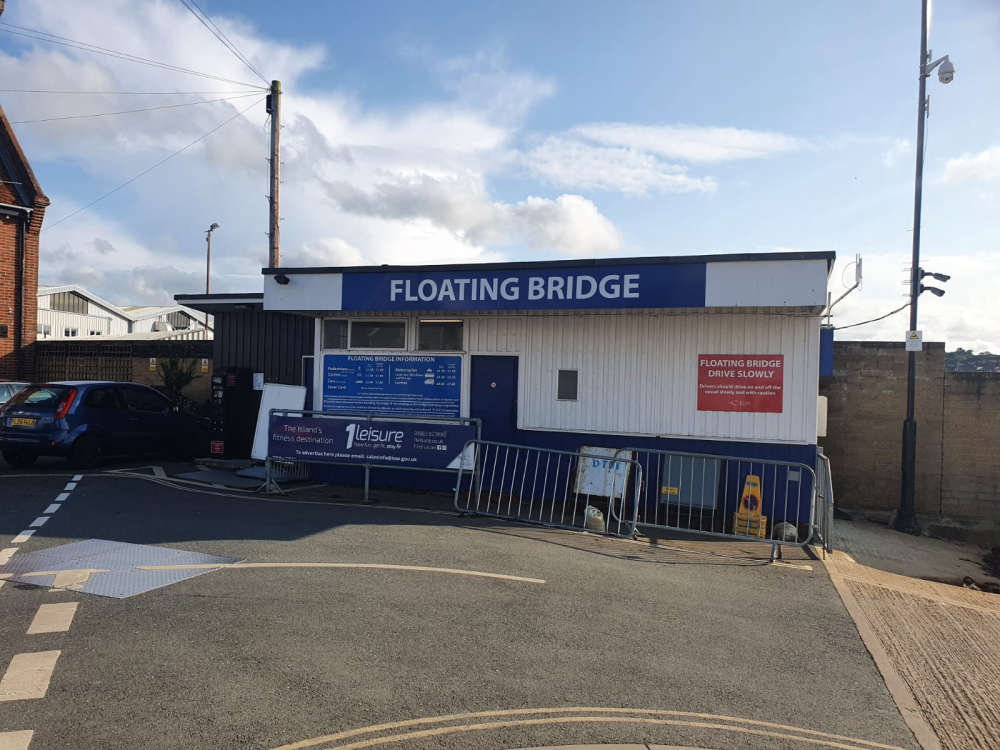 Council Chair Welcomes "Essential" £35,000 Floating Bridge Budget Spend
Council Chair Welcomes "Essential" £35,000 Floating Bridge Budget Spend
 Save Westridge Farm Case To Be Heard At The Royal Courts Of Justice In April
Save Westridge Farm Case To Be Heard At The Royal Courts Of Justice In April
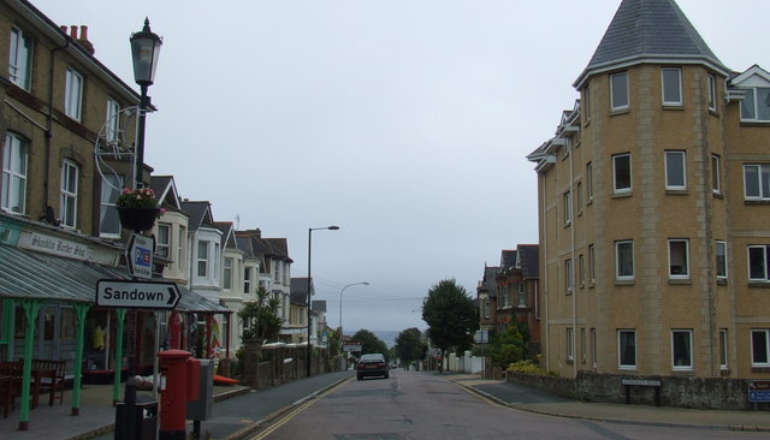 Island Seaside Town Could Get Large Eight Bed 'House Of Multiple Occupation'
Island Seaside Town Could Get Large Eight Bed 'House Of Multiple Occupation'
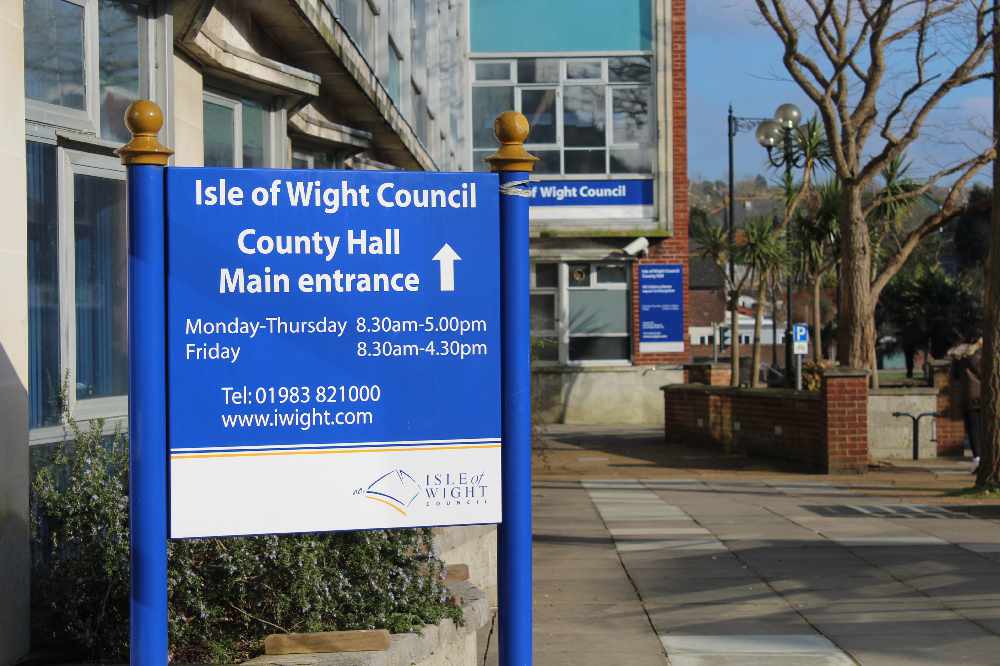 Isle Of Wight Council To Consider Key £13m Spending Packages Amid 'Unprecedented Uncertainty'
Isle Of Wight Council To Consider Key £13m Spending Packages Amid 'Unprecedented Uncertainty'
 Schools Come Out In Force To Support "Wear What Makes You Happy" Fundraiser For Arlo Lambie
Schools Come Out In Force To Support "Wear What Makes You Happy" Fundraiser For Arlo Lambie
 Isle Of Wight Council Launches 2025 National Apprenticeship Week With Flag Raising
Isle Of Wight Council Launches 2025 National Apprenticeship Week With Flag Raising
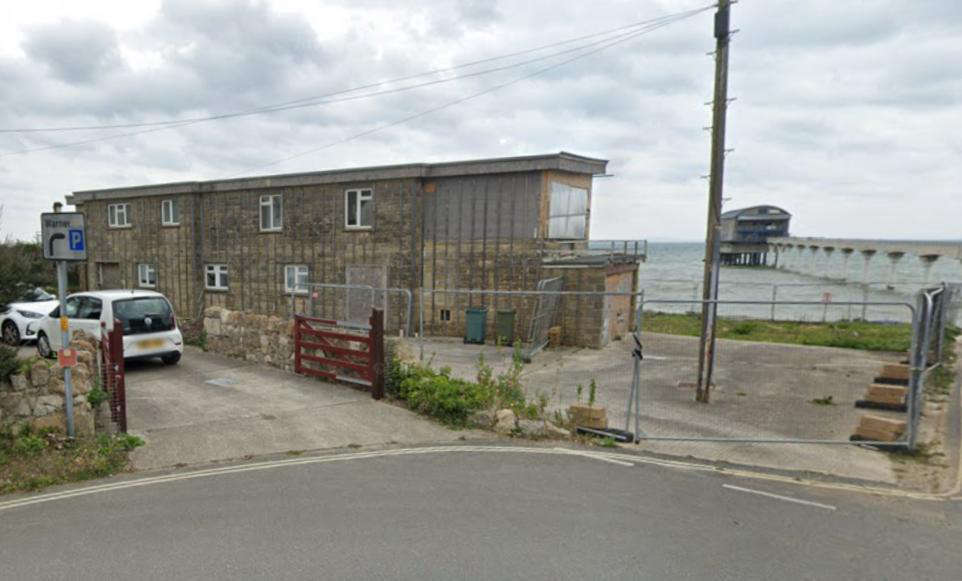 Plans To Replace 'Half-Built Eyesore' With New Seafront Café Divides Opinion
Plans To Replace 'Half-Built Eyesore' With New Seafront Café Divides Opinion


